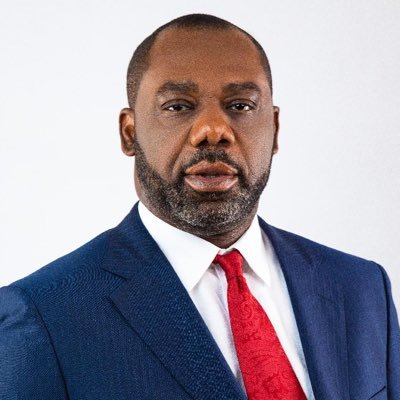The Minister of Energy, Dr. Matthew Opoku-Prempeh, has revealed that US-based oil and gas firm ExxonMobil could make a shock return to the country, having earlier relinquished its 80 percent interest in the Deepwater Cape Three Points offshore block.
ExxonMobil initially acquired rights to explore the local offshore block in 2018 and held an 80 percent interest in the concession, while the state held 15 percent through the Ghana National Petroleum Corporation (GNPC).
However, the company decided to exit from this venture after just two years having fulfilled its contractual obligations during the initial exploration period.
At the time of exit, ExxonMobil cited a focus on prioritising near-term capital spending on assets with the lowest cost of supply, including projects in Guyana, Brazil and the US Permian Basin.
Industry observers speculated that its departure from the country was part of a strategic shift in the company’s West Africa operations, as they were also involved in asset acquisitions in Chad and Cameroon.
“It was difficult because everybody was threatening to go down,” he said while referring to the fears oil firms had about the global energy transition process. “All the companies started changing their names from oil and gas to energy. But then they started making fantastic record profits within the same year. Now all of them have backed down; they are actively getting new businesses everywhere in Africa and in the world. Exxon Mobil intends to come to Ghana and we have already started talking.”
But touching on energy transition at the of ‘2023 Local Content Conference and Exhibition (LCCE)’ launch in Accra, the minister recognised that energy transition has had a significant impact on the industry.
As the world shifts toward cleaner and more sustainable energy sources, some companies are revising their strategies. To this end, he said the country is committed to transitioning at a pace that allows it to harness the potential of its natural resources.
It was against this backdrop that he disclosed this commitment, coupled with the energy industry’s changing landscape, has created opportunities for oil and gas companies to reevaluate their positions and potentially re-engage in the country’s energy sector.
This shift in global dynamics of the energy transition agenda, he hinted, has made it possible for companies like ExxonMobil to reconsider their involvement in Ghana’s oil fields.
He said: “The impressive growth of local content levels in the petroleum industry has not been without challenges, and there seems to be uncharted waters ahead as the oil and gas industry as a whole face an uncertain future with the looming effect of energy transition.
“The energy transition will be shaped to promote the utilisation of our God-given natural resources. It is being shaped because of our advocacy to ensure that when it is the right time to develop my country, I am not told that the resources God has given I cannot use it.”
The theme for this year’s LCCE is ‘Ten years of Local Content in Ghana’s upstream petroleum industry: Achievements, challenges, and prospects. According to the minister, this seeks to deepen the advocacy for Local Content Development within two contradicting dimensions – implementation challenges and achievements.
While recognising the success recorded, 10 years after the introduction of Local Content into the country’s oil and gas sector amid the challenges, he entreated all industry players to discuss the prospects of local content development under this uncertain future, and how they can make that future more exciting for the industry.
“We have entered an era in which local content and local participation must be seen and approached as twin pillars that should hold a position of prominence in the National Development agenda. Today’s gathering is indicative of our preparedness to collaborate and work with relevant governmental institutions, industry players and all other stakeholders to promote local content and local participation in the upstream petroleum industry.”
He acknowledged the role played by the Petroleum Commission (PC) in effective implementation of Local Content regulations and for consistently organising the Local Content Conference over the last eight years.
The Chief Executive Officer-PC, Egbert Faibille Jnr, mentioned that the launch presented an opportunity to signal all stakeholders that when they gather at Takoradi for the 2023 Local Content and Exhibition in the following year, the topic of discussion will be the status of local content after a decade.
He also emphasised government’s commitment to extending the benefits of upstream oil and gas activities to all Ghanaians, as part of a strategy for accelerated growth and poverty reduction.
The event aimed to stimulate discussions and improvements in local content, as it was acknowledged that local content requires consistent, realistic and pragmatic efforts to succeed.
Also speaking at the event, Director for Local Content at PC, Mr. Kwaku Boateng, stated that the Local Content Conference – which commenced in 2015 with around 250 participants from Ghana’s upstream petroleum industry – has grown into an international event with over 1,000 attendees from Ghana and three continents.
He highlighted that despite remarkable achievements in local content development, there are challenges and setbacks after ten years of implementing L.I. 2204.
He emphasised the importance of examining the industry’s future in light of emerging trends and the conference’s theme.










